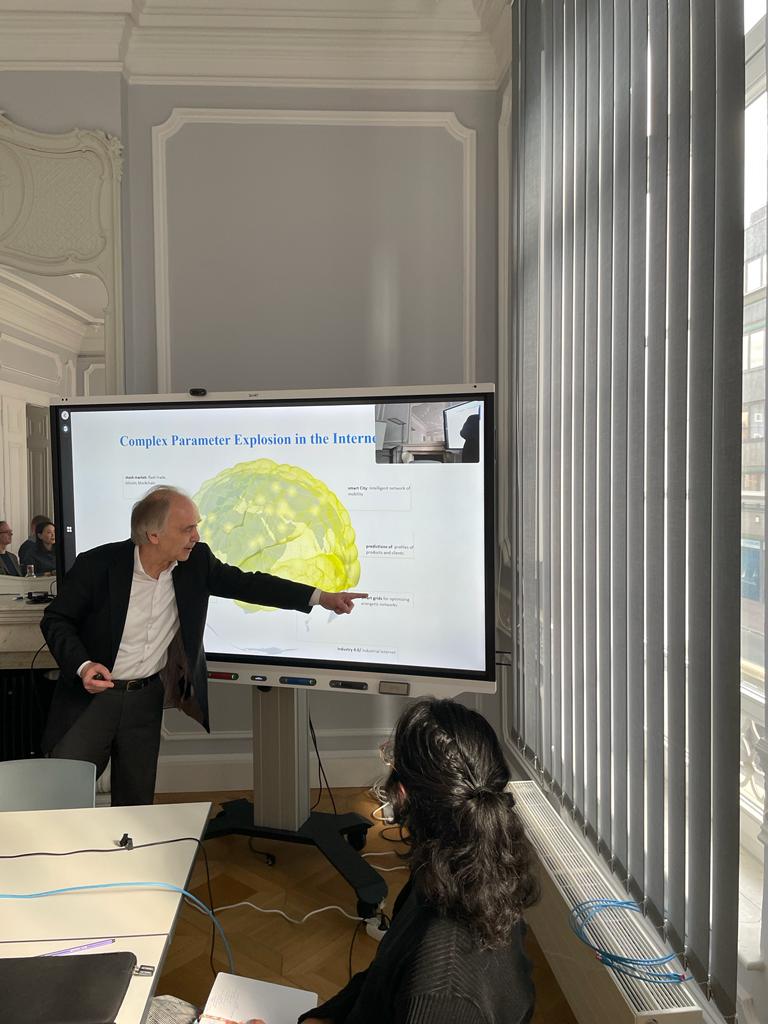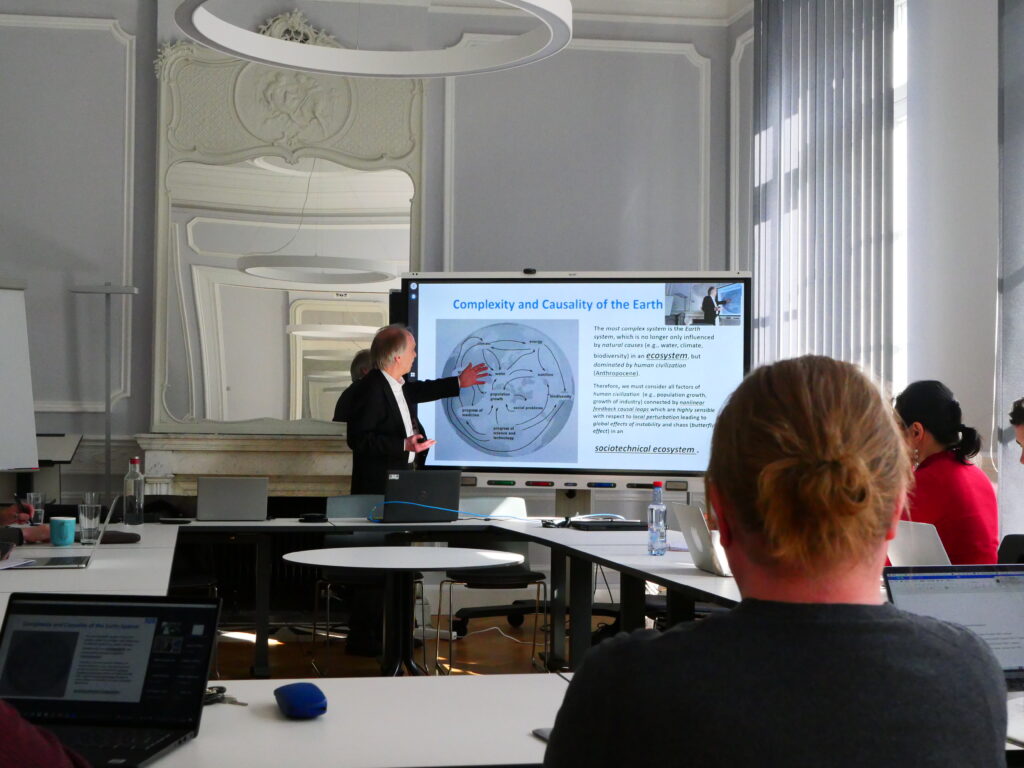Professor Klaus Mainzer on Complexity: From Natural and Social Sciences to Artificial Intelligence

On May 17th, we were delighted to host Professor Klaus Mainzer, who delivered a talk on “Complexity From Natural and Social Sciences to Artificial Intelligence”, as part of the the c:o/re Complexity lecture series. Klaus Mainzer is Professor Emeritus of Philosophy and Philosophy of Science at the Technical University of Munich.
In this talk, he laid a roadmap towards achieving sustainability by starting from theoretical considerations on pattern formation in complex natural systems and moving on to consequences for pattern recognition in complex artificial systems and, then, to discussing complexity in sociotechnical ecosystems.
Recently, results of complexity research have gained salience in machine learning (artificial intelligence) systems (e.g., neural networks, cognitive AI-systems, robots). While complex pattern recognition of AI-systems can and is modelled through statistical learning theory, statistical correlations of data cannot replace causal explanations of events. Mainzer holds that algorithms of causal learning are necessary for the detection of causal models behind the statistical distributions of data. Causal learning, then, would be a first step from weak AI with probabilistic learning to strong AI.
Professor Mainzer explained that the evolution of complex systems demonstrates the critical importance of pattern recognition for learning in general. This is confirmed, as an important example, by results in machine learning, which relies on pattern recognition, as enabled by the mathematical modelling of pattern formation. Shedding light on the importance of human creativity for innovating sustainable development, Mainzer argued that instability and non-linearity are not sufficient for pattern formation. Instead, he pointed to the crucial role of local activity.
In this view, sustainability on a global scale relies on both enhancing machine-to-machine communication, as incarnate in the Internet of Things and progress in the cultural studies, namely the stimulation of human creativity and plurality. Herein it occurs that what may be overlooked as merely theoretical consideration on the mathematics of complexity, actually, has profound implications for human societies, culture, cognition and beyond. The expansion of human societies onto the virtual spaces of the Internet, crossing formerly perceived boundaries and limitations, illustrates the importance of the notion of complexity for understanding contemporary technological, media and cultural processes. As Professor Klaus Mainzer stated, “we cannot programme innovation but we can incentivise it”.



